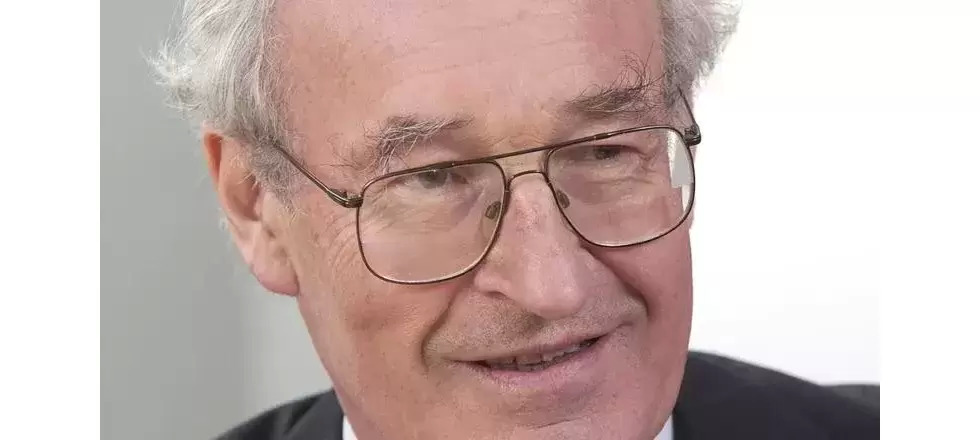
Obituary: Professor Sir Michael (Mike) Rutter
A personal reflection
In 1972, Mike published Maternal Deprivation Reassessed. It was a slim volume, written in dry academic style, but it was a tour de force. In the book, he scrutinised John Bowlby’s attachment theory, especially the impact on children of separation from their mothers, with his characteristic precision, and he concluded that some aspects of the theory, such as the claim that only mothers could be attachment figures for young children, did not stand up. His interest in the topic may well have been grounded in his own separation from his parents when he was evacuated from England to the United States at the beginning of the second world war. What was remarkable about Mike’s book was his incisiveness in analysing the evidence for and against Bowlby’s views. This was emblematic of all of Mike’s work; a forensic examination of the empirical evidence was at the root of everything he did. Bowlby, of course, remained the leading figure in the field of attachment, but he did come to the same conclusions as Mike on some specific issues. Maternal Deprivation Reassessed, and the slightly later Helping Troubled Children, were the books that inspired me as a young undergraduate to become a developmental psychologist. Not only did they present the study of children’s development as a worthwhile pursuit, but they also provided insight into how greater understanding of children’s difficulties could lead to better solutions for their psychological problems. For many budding psychologists back then, these books felt like a call to arms.
I first met Mike in the autumn of 1976. Recently enrolled on a Master’s course in child development at the Institute of Education in London, I had just begun a study of children in lesbian mother families. It is hard to describe just how much animosity there was against lesbian mothers in these days. Divorced heterosexual mothers were subject to considerable prejudice and discrimination; lesbian mothers were beyond the pale. It was in this social climate that Mike was called to act as an expert witness in child custody cases involving lesbian mothers. With his ever-present eye on the evidence, or in this case, the lack of it, Mike argued that there was no good scientific reason to deny lesbian women custody of their children on the grounds of their sexual orientation. He also believed that there was a need for sound empirical data on what actually happened to children with lesbian mothers, so when he heard about my fledgling study of children in lesbian mother families, I was summoned to meet him. There began a body of research that changed the way in which lesbian mothers were treated and perceived. Most child psychiatrists in these days wouldn’t have touched this controversial topic with a barge pole. For Mike, the issue was an empirical one. He did all he could to support research on whether the outcomes for children with lesbian mothers were, as he put it, ‘good, bad, or indifferent’, and to ensure that this research was carried out to the highest possible standards. Mike was an iconoclast through and through.
I can’t pretend it was always easy working with Mike. He was an exacting supervisor, and we had disagreements based on generational differences, such as whether the word gay should, or should not, have inverted commas. Mike supported the former. This was one of the few arguments that I won! But I learned more from him than anyone else I have ever met in academic life. He was extremely generous with his time, sending 10-page memos that will be familiar to those who have ever worked with him. Their arrival used to incur in me a sense of dread, but I also knew that the contents would make the research very much better. The last of such memos was waiting for me when I returned to my office following the third Covid lockdown; it was a handwritten note with his thoughts on my most recent book.
I came to realise that Mike relished a good argument. When I learned to stand up for myself, there would be a twinkle in his eye, and our conversations became much more fun. Mike’s interest in lesbian mothers is a little-known part of his vast array of accomplishments, but this work would not have been taken nearly so seriously without his weight behind it. Mike has always been committed to social justice and to the proper use of research, not only in improving people’s lives, but also in changing social attitudes. He was a man before his time in supporting lesbian mothers in courts of law in the mid-1970s. More than 40 years later, in 2019, we were both tickled to see that our early, and somewhat obscure, article on children in lesbian mother families was included among the selection of his papers republished to celebrate the 60th anniversary edition of the Journal of Child Psychology and Psychiatry.
Others are better qualified than I am to honour Mike’s intellectual accomplishments and unparalleled contribution to research in the fields of child development, child psychiatry, and developmental psychopathology, for which he has been awarded many honours. His work on the aetiology of child psychiatric disorder, the intergenerational transmission of psychiatric disorder, autism, risk and resilience in childhood, social influences on child adjustment, and the interplay between genes and the environment – to name just some of areas that he influenced – was transformative, and it had a pivotal influence on policy and practice worldwide. He had a capacity to identify the most important questions, and to be unrelenting in his search for the answers. For Mike, identifying the mechanisms was always key.
At a time when mental health problems in childhood and adolescence are on the rise, Mike’s work is more important than ever. His contribution has been profound, not least for its rigour and integrity, and will continue inform solutions to children’s problems for decades to come.


